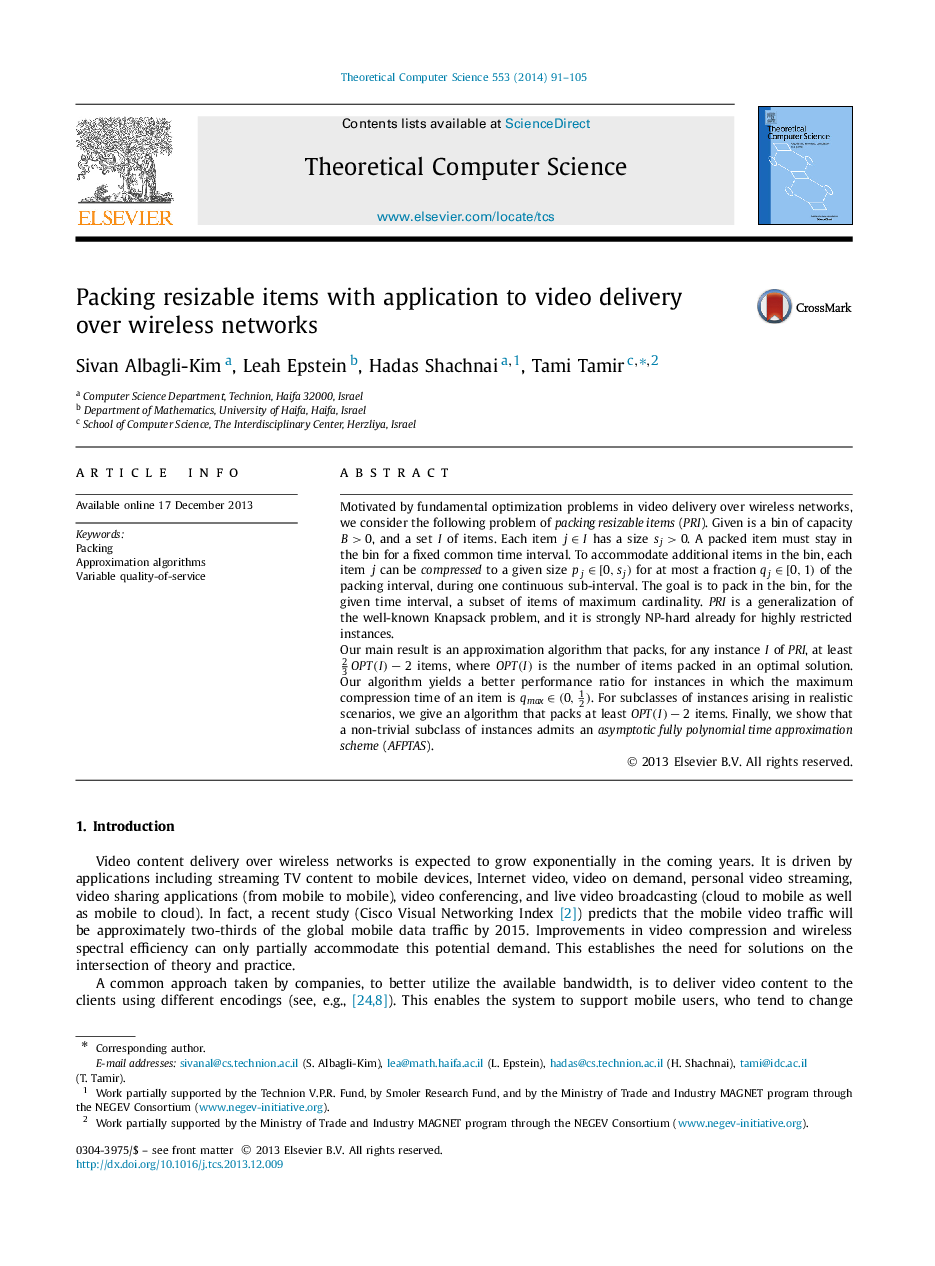| Article ID | Journal | Published Year | Pages | File Type |
|---|---|---|---|---|
| 434091 | Theoretical Computer Science | 2014 | 15 Pages |
Motivated by fundamental optimization problems in video delivery over wireless networks, we consider the following problem of packing resizable items (PRI ). Given is a bin of capacity B>0B>0, and a set I of items. Each item j∈Ij∈I has a size sj>0sj>0. A packed item must stay in the bin for a fixed common time interval. To accommodate additional items in the bin, each item j can be compressed to a given size pj∈[0,sj)pj∈[0,sj) for at most a fraction qj∈[0,1)qj∈[0,1) of the packing interval, during one continuous sub-interval. The goal is to pack in the bin, for the given time interval, a subset of items of maximum cardinality. PRI is a generalization of the well-known Knapsack problem, and it is strongly NP-hard already for highly restricted instances.Our main result is an approximation algorithm that packs, for any instance I of PRI , at least 23OPT(I)−2 items, where OPT(I)OPT(I) is the number of items packed in an optimal solution. Our algorithm yields a better performance ratio for instances in which the maximum compression time of an item is qmax∈(0,12). For subclasses of instances arising in realistic scenarios, we give an algorithm that packs at least OPT(I)−2OPT(I)−2 items. Finally, we show that a non-trivial subclass of instances admits an asymptotic fully polynomial time approximation scheme (AFPTAS).
